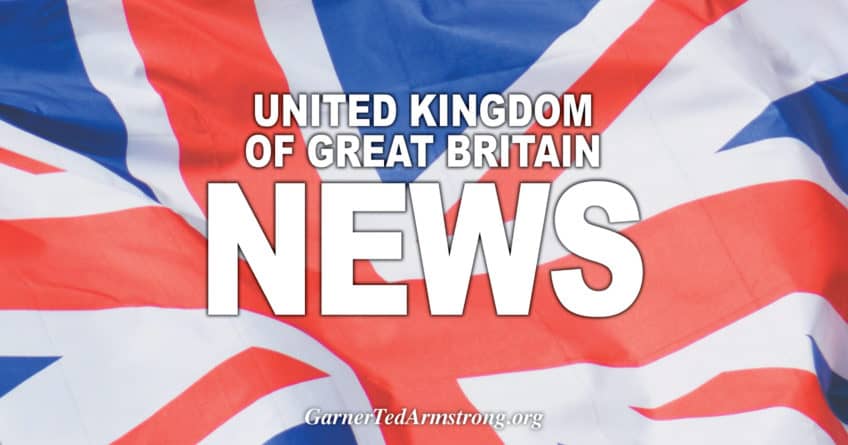During a discussion at the Conservatives’ virtual spring forum, the UK Prime Minister said that a “third wave” is being witnessed in parts of Europe and “bitter experience” has taught him that this could hit the UK “three weeks later”.

UK Prime Minister Boris Johnson said the vaccine rollout should mitigate against rising case numbers. Picture: PA
British Prime Minister Boris Johnson has said he is wary of the prospect of rising coronavirus infection rates but sees “absolutely nothing in the data” to halt the easing of the lockdown.
The UK Prime Minister acknowledged cases could again spiral as restrictions are relaxed, with the “stay local” order having ended in Wales and larger outdoor meetings being permitted in England from Monday.
But he said on Saturday that the “key difference” this time is that the rise in prevalence should be “sufficiently mitigated” by the successful vaccine rollout.
However, there were warnings that more must be done to prevent the import of new variants from overseas as vaccine minister Nadhim Zahawi raised the prospect of booster shots beginning in September.
During a discussion at the Conservatives’ virtual spring forum, the UK Prime Minister said that a “third wave” is being witnessed in parts of Europe, and “bitter experience” has taught him that this could hit the UK “three weeks later”.
“The question is – is it going to be, this time, as bad it has been in the past? Or have we sufficiently mitigated, muffled, blunted the impact by the vaccine rollout?” he added.
“There’s lots of promising evidence that a lot of people who could be vulnerable are now protected against death and serious disease, that’s my hope, my hunch.
“But we haven’t yet seen the real conclusive proof in the sense that we haven’t seen a take-off in infection rates that hasn’t been accompanied by a lot of hospitalizations and deaths. That’ll be the key difference this time round, if we’re lucky.” Mr. Johnson, however, remained optimistic that his roadmap to easing England’s restrictions can continue, saying there is a “good chance” of allowing non-essential retail reopening on April 12, when hairdressers are also earmarked to reopen.
“In just a few days’ time, I’m finally going to be able to go to the barbers,” he said in a subsequent speech.
“But more important than that, I’m going to be able to go down the street and cautiously, but irreversibly, I’m going to drink a pint of beer in the pub.
“And as things stand, I can see absolutely nothing in the data to dissuade me from continuing along our road map to freedom, unlocking our economy and getting back to the life we love.”
Meanwhile, vaccines minister Nadhim Zahawi said the first booster doses would go to the top four priority groups, including the over-70s care home staff, NHS workers and the clinically extremely vulnerable.
He told the that this would likely begin in September and was said to have added that the Government is expecting up to eight different jabs to be available by the autumn, including one protecting against three different variants in a single dose.
A number will reportedly be manufactured in the UK, which could ease the pressure on supplies amid tensions with the European Union as it faces shortages from AstraZeneca.
Asked when the booster programme would begin, Mr Zahawi told the newspaper: “The most likely date will be September.
“Jonathan Van-Tam (the deputy chief medical officer) thinks that if we are going to see a requirement for a booster jab to protect the most vulnerable, (it) would be around September.” Dr Mike Tildesley, who advises the Government on the Spi-M modelling group, said it was “good news” that September has been suggested for boosters, but warned the arrival of new variants must be stalled.
“In the shorter term, we are worried about new variants, but if we can keep these out for a longer period of time, enough time for these boosters to be developed, then that should hopefully protect us as we go into the winter,” he told Times Radio.
Ministers were facing pressure to protect the success of the vaccination programme against the import of new variants from overseas, with the reporting officials met on Friday to consider expanding the travel “red list” mandating hotel quarantine.
Labour’s shadow home secretary Nick Thomas-Symonds said: “Ministers need to do everything possible to stop new variants reaching the UK – and move to a comprehensive hotel quarantine system now.” Government data up to Friday showed that 29,727,435 people in the UK have received a first jab, a rise of 411,305 on the previous day.
The UK Government said a further 58 people had died within 28 days of a positive test for Covid-19 as of Saturday, bringing the UK total to 126,573.
Source: https://www.irishexaminer.com/world/arid-40252952.html
[Disclaimer]








